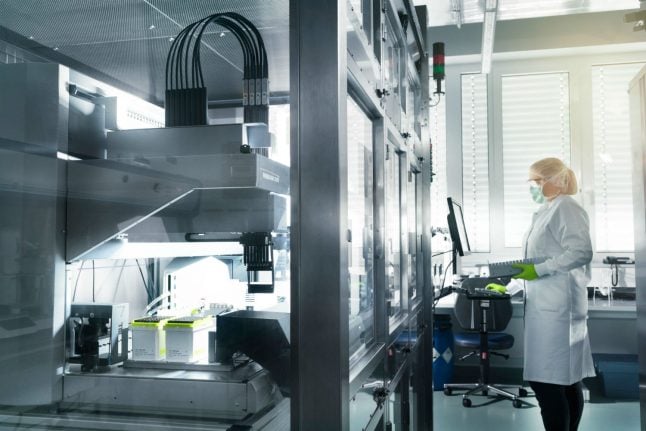The firm said it had agree to acquire a “state-of-the-art” production facility in the western German city of Marburg from Swiss pharma giant Novartis.
“This acquisition reflects BioNTech's commitment to significantly expanding its manufacturing capacity in order to supply a potential vaccine worldwide upon authorisation or approval,” finance chief Sierk Poetting said in a statement.
READ ALSO: US secures potential coronavirus vaccine co-developed in Germany
The Marburg site will scale up BioNTech's Covid-19 vaccine production capacity by up to 750 million additional doses per year, or over 60 million doses per month, “once fully operational”, the statement added.
No financial details were revealed.
The deal is expected to close in the fourth quarter of 2020, and the 300 Novartis staff at the site will switch to working for BioNTech.
Mainz-based BioNTech is teaming up with US behemoth Pfizer to develop a coronavirus vaccine using new technology based on mRNA, a type of genetic material never before used to make a vaccine.
They already have one vaccine candidate in the late-stage Phase 3 trial that is currently being tested on around 30,000 volunteers.
Just eight other vaccine candidates globally have reached this stage so far.
The European Union, the United States and several other countries have already announced large contracts to secure millions of doses of the possible BioNTech-Pfizer vaccine once it clears all the necessary regulatory hurdles.
READ ALSO: 'Important milestone': Germany to start first clinical tests on coronavirus vaccine
Ahead of the Marburg acquisition, BioNTech said it planned to supply up to 100 million doses by the end of 2020 if its vaccine is successful, and 1.3 billion doses by the end of 2021.
Next year's number is now expected to be “significantly” higher, a spokeswoman told AFP.
The Marburg purchase comes just days after BioNTech received a 375-million-euro funding boost from the German government .



 Please whitelist us to continue reading.
Please whitelist us to continue reading.
Member comments